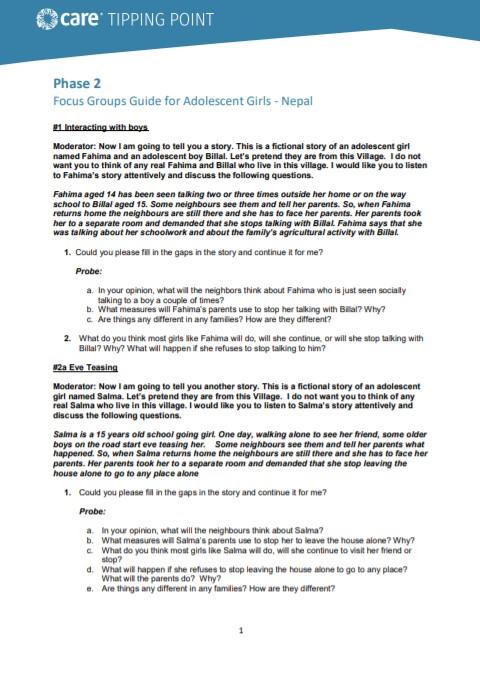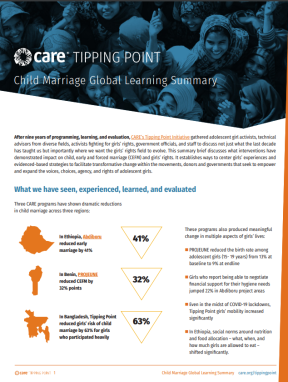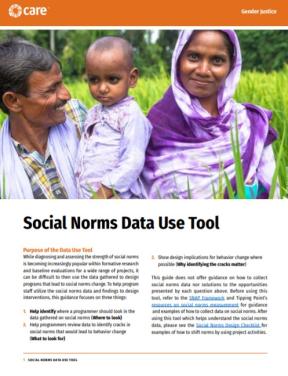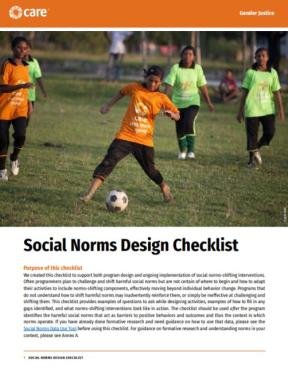- Toolkit
- 4 February 2020
Monitoring and evaluation tools: CARE's Tipping Point initiative
- Author: ESubden
- Published by: Care, Tipping Point

The Tipping Point Phase 2 evaluation seeks to assess the additional impact provided by an intensive social norms approach on child marriage prevalence, changes in girls' agency (such as decision-making power and their sexual and reproductive health), relations-level changes within the household to support gender equitable behaviours, and girls' collective action for their rights. This evaluation has been designed to contribute to the research base on child, early and forced marriage (CEFM) and thus the broader discourse on adolescent girls’ rights by generating evidence on the effectiveness of holistic gender transformative programming and understanding the potential value-add of social norms focused programming.
The tools page contains:
- Quantitative surveys for girls, boys and adult community members.
- Focus group discussion guides that use vignettes and a “norm by norm” approach, to define and detect changes in social norms, based on the SNAP framework
- Key informant interview guides for government officials, school personnel, and religious leaders
- In-depth interview guides for girls and boys
To inform the evaluation and program quality, Tipping Point is monitoring implementation fidelity, staff transformation, and changes in girls' agency, supportive relationships surrounding them, and social norms. These available monitoring tools include:
- Rolling profile tools for girls, boys, mothers, and fathers
- Facilitator’s observation tool
- Process documentation tool for community events
- Home visit reports
- Attendance tools
- Countries / Regions:
- Nepal, Bangladesh


